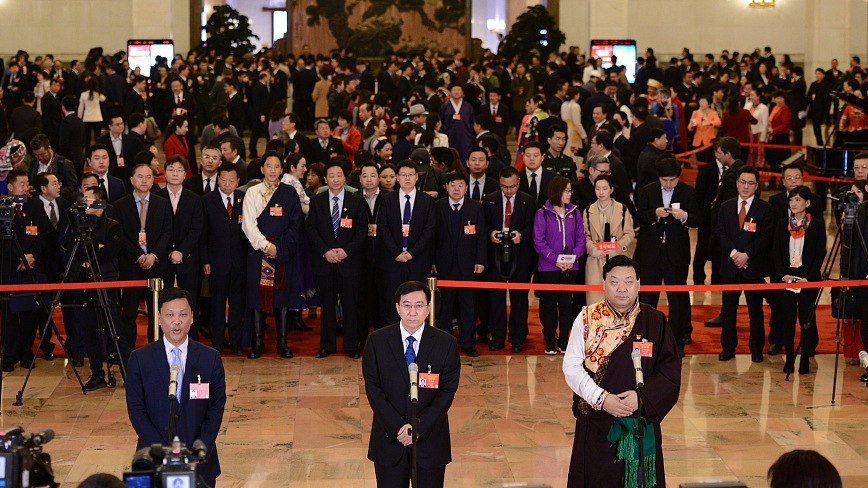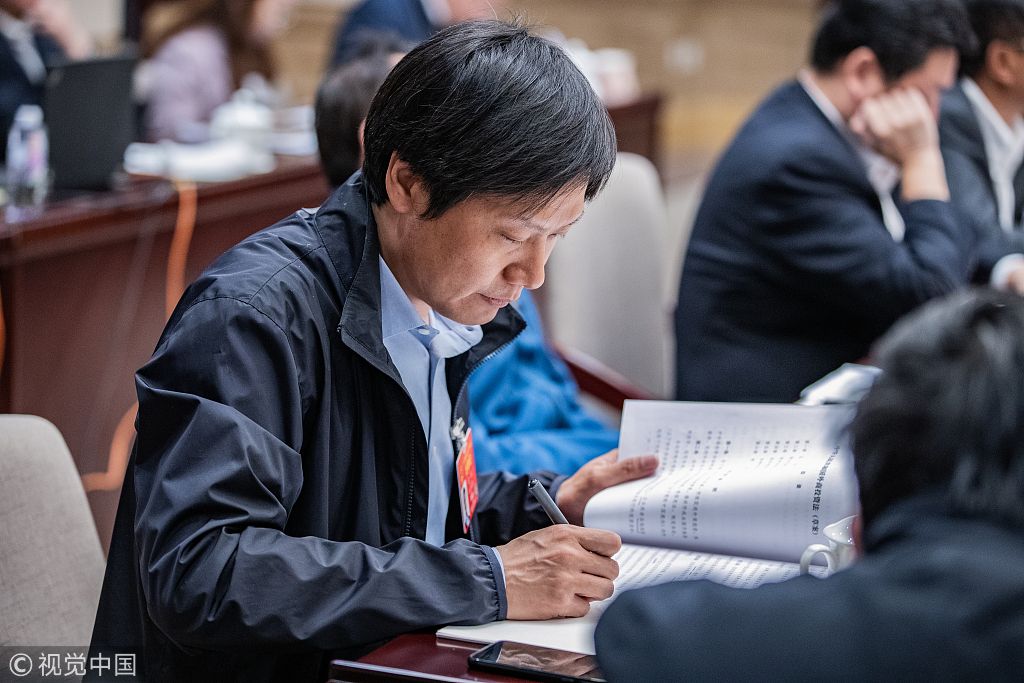
Opinion
17:04, 15-Mar-2019
The National People's Congress concluded with a victory
Kong Qingjiang

Editor's note: Kong Qingjiang is the dean of the School of International Law under China University of Political Science and Law. The article reflects the author's opinions, and not necessarily the views of CGTN.
The Second Session of the 13th National People's Congress (NPC) is coming to an end. As usual, this year's NPC session attracts the attention of the world.
The NPC, with nearly 3,000 members in 2018, is the largest parliamentary body in the world. The National People's Congress meets in full session for roughly two weeks each year.
For the Chinese people, the NPC is a symbol of democracy with its own characteristics and occupies an important place in the political life of the people. According to the Constitution of the People's Republic of China, it is not only the national legislature of China responsible for the enactment of important pieces of legislation, but the top authority to which the State Council, the Supreme People's Court, and the Supreme People's Procuratorate are responsible.
During its annual session, the NPC decides on major issues of the State and examines and votes on Work Reports of these agencies.
Ministers are often enlisted to answer questions from the delegates. The ordinary people can probe into how important issues relating to the economic and social development, as well as the political stability and the rule of law are debated among the delegates, and how decisions are made concerning affairs affecting their life and the development of the country.

VCG Photo
VCG Photo
For the outsiders, the NPC session provides them a prism to look into the political panorama and particularly the behavior of the elites of all the walks of life and the operations of the Chinese politics and particularly the Chinese parliament.
It also offers them an opportunity to understand China's attitude towards the rest of the world and its position in the international landscape and diagnose how it perceives its relations with the rest of world and how it will respond to the international challenge.
This year's NPC session is characterized by an important piece of legislation on foreign investment. The Draft of the Foreign Investment Law was originally prepared by the State Council with the authorization from the NPC Standing Committee and got passed today.

Lei Jun, CEO of Chinese phone maker Xiao Mi Corp., reviews draft of the Foreign Investment Law during the annual session of the National People's Congress in Beijing, China. /VCG Photo
Lei Jun, CEO of Chinese phone maker Xiao Mi Corp., reviews draft of the Foreign Investment Law during the annual session of the National People's Congress in Beijing, China. /VCG Photo
Before it was referred to the NPC session, the draft had undergone two rounds of review by the NPC Standing Committee. With inputs and revisions from the members of the Standing Committee, the new draft was subjected to the NPC session, which spent unprecedentedly two days examining and deliberating the revised versions of the draft law in full session.
This legislative process not only illustrates how this important law, which amounts to a statutory recognition of the overall opening-up endeavors, come into life in the Chinese legislature but also serve as a rebuttal to the stereotype perception from the western media on the NPC's "rubber stamp" image.
(If you want to contribute and have specific expertise, please contact us at opinions@cgtn.com)

SITEMAP
Copyright © 2018 CGTN. Beijing ICP prepared NO.16065310-3
Copyright © 2018 CGTN. Beijing ICP prepared NO.16065310-3